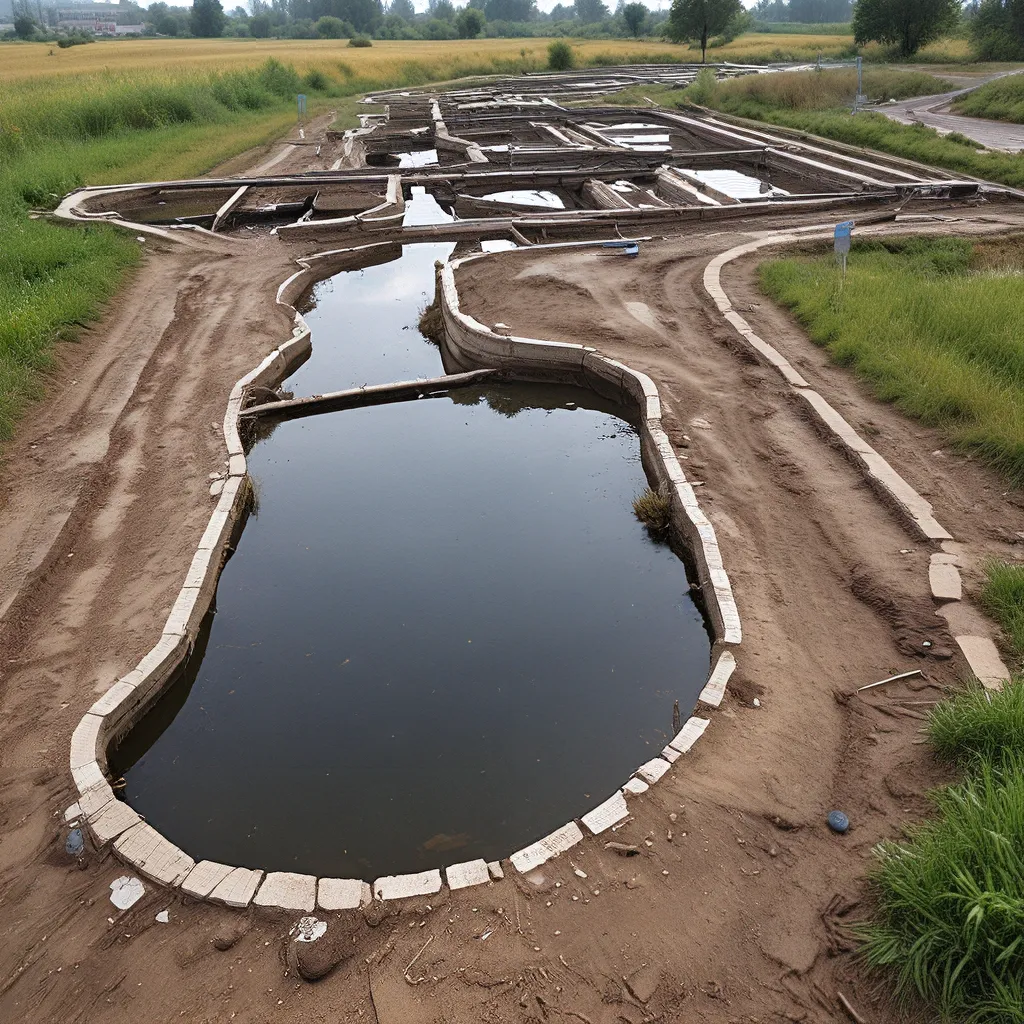
As a curious individual with a deep fascination for the intersection of science, technology, and societal impact, I’ve been captivated by the emerging field of wastewater-based epidemiology. It’s a realm where the humble sewer system becomes a powerful tool in our quest for a healthier, more sustainable future. Buckle up, because I’m about to take you on a journey that will forever change the way you view those humble pipes beneath our streets.
Uncovering the Hidden Treasure in Our Wastewater
You might be wondering, “Wastewater? Really? What could that possibly tell us about public health?” Well, my friends, the answer lies in the fact that our wastewater is a treasure trove of valuable data. “How so?” you might ask. Let me explain.
When we flush our toilets or wash our hands, we’re not just sending our personal business down the drain – we’re also flushing away clues about our collective health. You see, our wastewater contains traces of various substances, including pharmaceuticals, illicit drugs, and even genetic material from viruses and bacteria. By analyzing these “markers” in our wastewater, scientists can gain valuable insights into the health and behaviors of entire communities.
Researchers have discovered that wastewater-based epidemiology can provide early warnings about disease outbreaks, track the spread of COVID-19, and even monitor the use of illegal drugs. It’s a powerful tool that allows us to glimpse into the collective health of a population, without needing to individually test every single person.
The Pioneers of Wastewater-based Epidemiology
This field of study may seem like a recent development, but in reality, its roots can be traced back decades. “Who were the pioneers of this innovative approach?” I hear you ask. Well, let me introduce you to a few of the unsung heroes who paved the way.
One of the earliest pioneers was Dr. Gertjan Medema, a Dutch microbiologist who, in the 1990s, recognized the potential of wastewater analysis to track the spread of infectious diseases. He and his team at the Delft University of Technology in the Netherlands began exploring ways to detect the presence of various pathogens in wastewater, laying the groundwork for what would become a global phenomenon.
Fast forward to the early 2000s, and we have Dr. Christian Daughton, a research chemist at the U.S. Environmental Protection Agency (EPA), who pioneered the use of wastewater analysis to monitor the use of illicit drugs. His work demonstrated the power of this approach in understanding societal behaviors and trends.
These pioneers, along with many others, have paved the way for wastewater-based epidemiology to become a vital tool in our public health arsenal. Their vision and perseverance have transformed the humble sewer system into a valuable source of data that can inform decision-making and drive positive change.
The Rise of Wastewater-based Epidemiology
As the world grappled with the COVID-19 pandemic, the importance of wastewater-based epidemiology truly came to the forefront. “How did this approach help us navigate the crisis?” you might wonder.
When the pandemic first struck, traditional disease surveillance methods, such as testing individuals, struggled to keep up with the rapid spread of the virus. That’s where wastewater analysis stepped in as a game-changer. By monitoring the presence of SARS-CoV-2 genetic material in wastewater, researchers were able to detect outbreaks before they became visible in clinical data.
This early warning system allowed authorities to take proactive measures, such as targeted testing and implementing preventive strategies, to mitigate the spread of the virus. It was a revelation – instead of relying solely on individual testing, we could leverage the collective data hiding in our sewers to gain a more comprehensive understanding of the pandemic’s trajectory.
But the applications of wastewater-based epidemiology extend far beyond infectious disease monitoring. It’s also proving to be a valuable tool in the fight against the opioid crisis, substance abuse, and even environmental pollution. By tracking the presence of various chemicals and compounds in wastewater, researchers can gain insights into the prevalence of these issues within a community, informing targeted interventions and policy decisions.
The Future of Wastewater-based Epidemiology
As we delve deeper into the realm of wastewater-based epidemiology, the possibilities seem limitless. “What does the future hold for this innovative approach?” I can practically hear you asking.
Well, my friends, the future is bright, and it’s filled with exciting possibilities. Imagine a world where we can proactively identify emerging health threats, monitor the effectiveness of public health interventions, and even track the impact of our individual behaviors on the environment. That’s the promise of wastewater-based epidemiology.
Alpha Wastewater, a leading provider of wastewater treatment services, is at the forefront of this revolution. By leveraging cutting-edge technology and advanced data analysis, they’re helping municipalities and organizations harness the power of wastewater data to drive sustainable change.
But the journey doesn’t end there. Researchers around the world are pushing the boundaries of what’s possible, exploring ways to detect and track an ever-expanding array of substances and indicators in our wastewater. From monitoring antibiotic resistance to assessing the impact of climate change, the potential applications are truly mind-boggling.
As we move forward, I can’t help but feel a sense of excitement and optimism. Wastewater-based epidemiology is not just a tool – it’s a window into the collective health and well-being of our communities. By understanding and harnessing this hidden treasure, we can make more informed decisions, implement targeted interventions, and work towards a future where public health and environmental sustainability go hand in hand.
So, the next time you flush, remember – you’re not just sending your personal business down the drain; you’re contributing to a vast and invaluable data source that could hold the key to a healthier, more sustainable world. Isn’t that just mind-blowing?